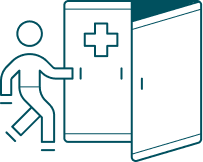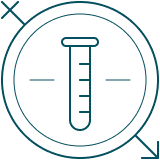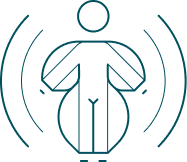
STD Testing
Basic and comprehensive STD tests, same day treatment and more
Sexually transmitted disease (STD) testing is an important aspect of sexual health and can help diagnose and prevent the spread of infections. Whether you suspect you may have been exposed to a sexually transmitted disease or you simply want screening, it’s a good idea to get tested. Here are some key points to consider:
- Testing Types: There are various STDs, and each may require different testing methods. Common STDs include chlamydia, gonorrhea, syphilis, HIV, hepatitis Band C, herpes and HPV. Testing methods can include blood tests, urine tests, swabs or combination of these.
- Testing Frequency: The recommended testing frequency varies depending on your sexual activity and individual risk factors. Generally, it is advised to get tested more frequently if you have multiple partners and engage in high risk behaviors.
- Symptoms and asymptomatic infections: Although most STDs end up showing symptoms and prompt patients to seek care, some STDs may be asymptomatic, meaning you may not experience any symptoms for some time. Regardless, you can still transmit the infections. Hence, it is important to get tested. Some of the most common symptoms are pain with urination, penile/vaginal discharge, pelvic discomfort/pain, sores, rashes.
- Pre-Exposure Prevention (PrEP): If you engage in unprotected and/or high risk sexual behavior on a regular basis, you might consider seeking pre-exposure prophylaxis (PrEP) for HIV. Truvada®, Descovy® are oral medications and Apretude® is an injectable that reduces the risk of HIV transmission when used as directed.
Common sexually transmitted infections (STIs) include:
- Chlamydia: Caused by the bacterium Chlamydia trachomatis, it is one of the most common bacterial STI. It can be asymptomatic or cause symptoms such as abnormal discharge, pain during urination, and pelvic pain.
- Gonorrhea: Caused by the bacterium Neisseria gonorrhoeae, it can infect the genitals, rectum, and throat. Symptoms may include discharge, painful urination, and in women, pelvic pain. However, many infected individuals may not have any symptoms.
- Syphilis: Caused by the bacterium Treponema pallidum, syphilis can progress through stages if left untreated. Primary syphilis is characterized by a painless sore (chancre), secondary syphilis presents with rash and flu-like symptoms, and tertiary syphilis can cause severe complications in organs.
- Human Papillomavirus (HPV): HPV is a viral infection that can cause genital warts and is associated with several types of cancer, including cervical, anal, and oropharyngeal cancer. Some HPV infections may resolve on their own, but others may persist and require treatment.
- Genital Herpes: Caused by the herpes simplex virus (HSV), it is characterized by painful sores or blisters in the genital area. HSV-1 primarily causes oral herpes, while HSV-2 commonly causes genital herpes, but both types can infect either location.
- Human Immunodeficiency Virus (HIV): HIV weakens the immune system, making individuals more susceptible to other infections and diseases. It is primarily transmitted through unprotected sexual contact, sharing needles, or mother-to-child transmission during childbirth or breastfeeding.
- Hepatitis B and C: Hepatitis B and C are viral infections that affect the liver. They can be transmitted through sexual contact, sharing needles, or exposure to infected blood or bodily fluids. Chronic hepatitis B and C infections can lead to severe liver damage and increase the risk of liver cancer.
STD testing is a responsible choice for maintaining your sexual health and it’s important to have open and honest conversation with your healthcare provider about your concerns and questions.






















